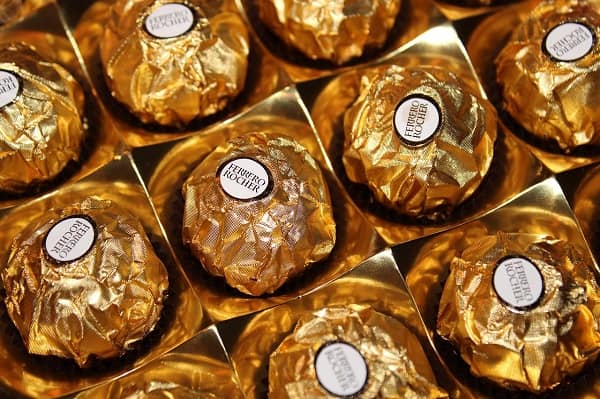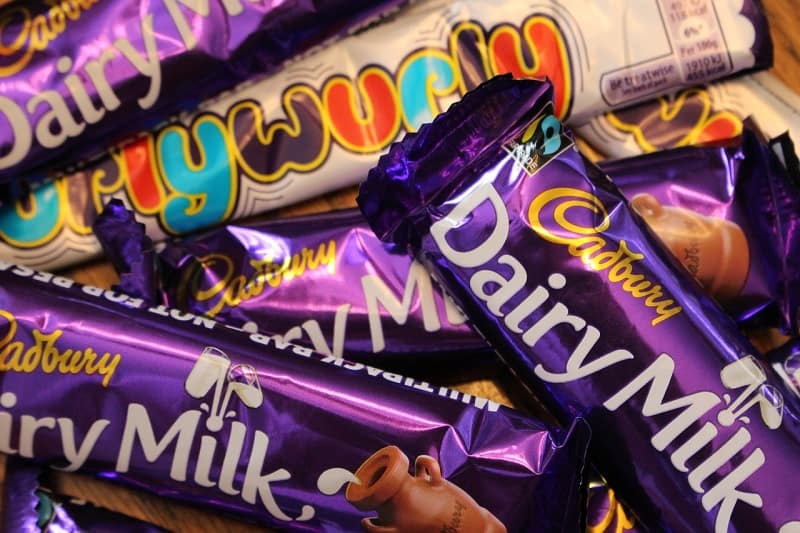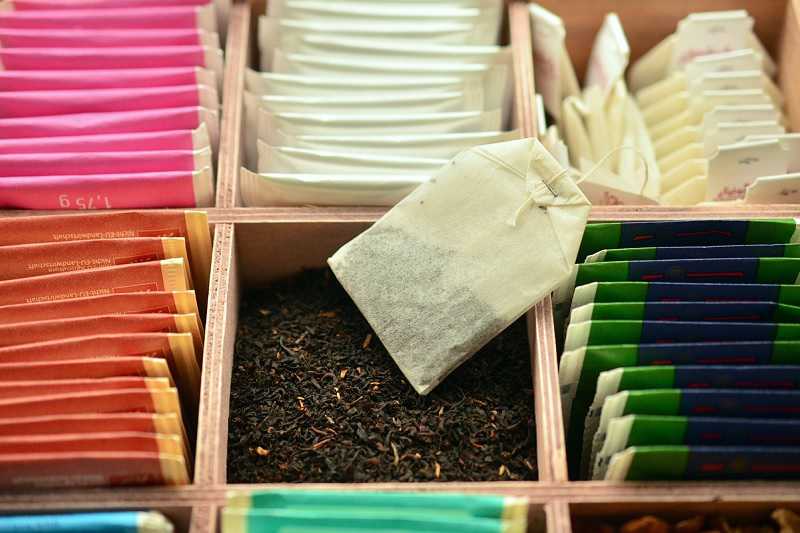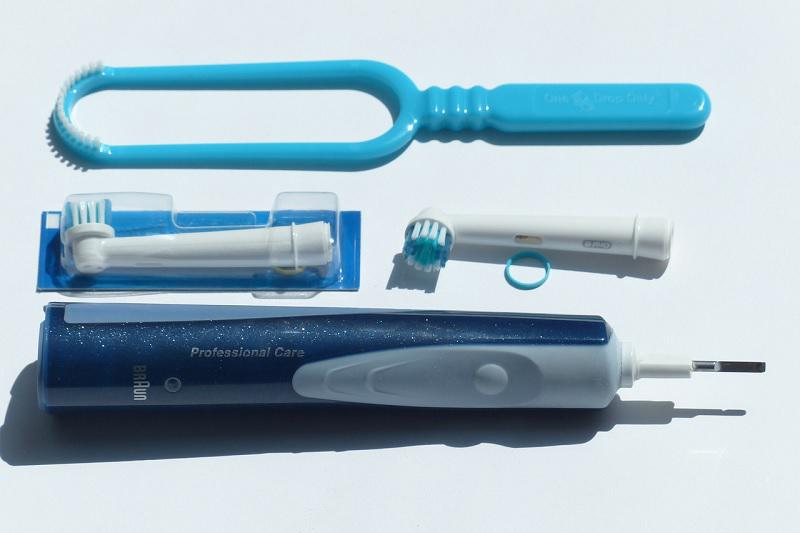Most of us Brits like nothing better than to devour a luxurious bar of chocolate after a hard day at work. Or give to a friend or loved one. Or share and indulge in at Easter or Christmas time.
According to some sources, we consume more chocolate here than anywhere else in the world (a whopping 8.4 kg of chocolate per person in 2017!!)
Whilst our chocoholic habits probably aren’t so great for our waistlines, the worst issue doesn’t lie with our health but with the environmental impact of all that plastic packaging.
Usually, it ends up in landfill sites, gets incinerated or litters the land and sea. That’s not to mention the fossil fuels that are used in the manufacture of it all.
So, what do you do?
…Can you recycle that wrapper from your Snickers bar or KitKat?
…What about that wrapper from that delicious bar of Dairy Milk?
…Or the packaging from the box of Ferrero Rocher or Quality Street?
To help clear up some of the confusion, we’d like to guide you through what you should do with your chocolate wrappers to help you recycle what you can and make more eco-aware consumer choices.
Table of Contents
Why Do Manufacturers Use So Much Plastic in Their Packaging?
Plastic is the packaging material of choice for chocolate bars and boxes of chocolates simply because it works so well. It helps keep the chocolate inside fresh, it helps keep germs out and it’s also flexible, lightweight and relatively cheap.
Consumers also love to see their chocolates wrapped in attractive, indulgent and colourful packaging, and so that’s exactly what traditional chocolate companies aim to provide.
However, as you’ll see, many of these plastics aren’t recyclable, nor are they the only option.
Can You Recycle Chocolate Bar Wrappers?
Although it can officially be recycled, most local authorities in the UK don’t currently accept polypropylene, the type of plastic from which chocolate bar wrappers are made.
Chocolate bars like Mars, Snickers, KitKats and Bounty bars are wrapped in a plastic called polypropylene (and often other materials too.)
Polypropylene is a popular plastic made from fossil fuels. Highly durable and able to withstand temperature fluctuations, it’s often used for yoghurt pots, margarine pots, deli containers, medicine bottles, condiment bottles and the lining of your takeaway coffee cup.
It’s also known as PP and given the plastic identification number ‘5’.
Can You Recycle Chocolate Boxes and Packaging?
Yes! You can recycle much of the packaging that is used for boxes of chocolates and selection packs, but certainly not all of it.
Many chocolate manufacturers such as Lindt and Thorntons package their products in cardboard which can easily be recycled.
Surprisingly, the same also goes for the plastic tubs that house chocolates like Celebrations, Roses, Quality Street and Heros.
These are made of Polyethylene Terephthalate or PET 1 which is the same plastic as used to make plastic drinks bottles. This is easily recycled and collected by 99% of local authorities in the UK.
But be careful when it comes to things like the plastic insert inside your box of Ferrero Rocher or Milk Tray—these plastics are usually made from a variety of materials which often can’t be recycled.
Please check the packaging itself for details about the type of plastic used then check with your council to see if you can pop them into the recycling bins.

Can You Recycle Inner Wrappers on Quality Street etc?
It’s a mixed bag when it comes to recycling the inner wrappers around chocolates like Quality Street and Roses as they are often made from a combination of materials which may or may not be recyclable.
If your chocolate comes wrapped in aluminium, you can easily recycle the wrappers, provided you collect them together in a big ball so they don’t get lost in the sorting and recycling machines.
Those brightly coloured pieces of cellophane wrappers are also surprisingly eco-friendly.
If they’re genuine cellophane, they’re completely biodegradable and you can even throw them onto the compost heap if you like. (Cellophane isn’t made of plastic but cellulose—a plant-derived material)
Beware of materials that look like cellophane but are actually made of plastic as these won’t decompose nor are they currently recyclable in the UK.
Are There Plastic-Free Alternatives to Plastic Chocolate Wrappers?
If you’re a chocoholic, don’t worry! You don’t need to ditch your greatest love for the sake of the planet. Just switch brands.
Many chocolate companies in the UK have expressed a commitment to reduce the amount of plastic they’re using to wrap their products and to move towards more eco-friendly options, including Mars and Nestle.
Lindt & Sprüngli and Marks & Spencer have also pledged to reduce their plastic use in the future, without giving a specific deadline. At the time of writing, Cadbury’s don’t have any plans to reduce their plastic packaging.
Smaller chocolate companies such as Divine, Seed & Bean and Love Cocoa already offer recyclable or compostable packaging. The same can be said for those classic Quality Street chocolates—since 2009 their wrappers have been fully biodegradable.
So whilst we can’t yet recycle all of our chocolate wrappers in the UK, we can still make consumer choices which don’t have such a negative impact on the planet.
Buy chocolate bars and boxes of chocolate which have been packaged in paper, cellophane or cardboard and avoid those wrapped in plastic. You can still enjoy that afternoon bar of chocolate whilst also reducing your plastic waste.

Charlotte Witts is a writer and entrepreneur who wants to show you how easy it is to live a more conscious, zero-waste lifestyle. A confirmed yoga-addict, trail runner and ocean-lover, she currently lives in the Azores where she enjoys the simple pleasures in life.




Well done Charlotte. I wish it was easier to tell the difference between cellophane and plastic. Can we put foil with a paper backing into foil recycling?As in some chocolate. I’m not sure how the recycling of aluminium foil is achieved. If heat is used then the paper would burn off.
Great info, thanks xx